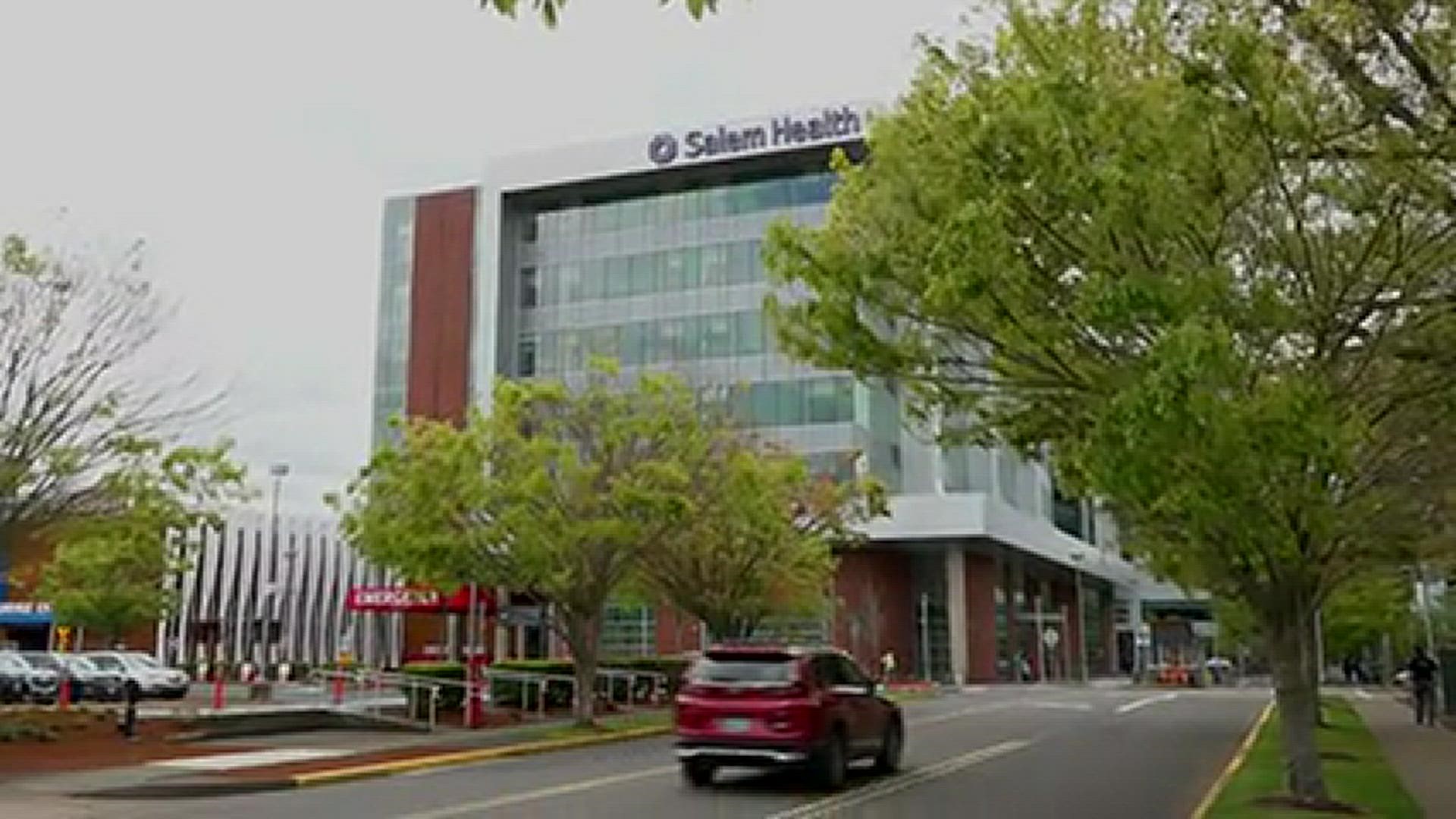OREGON, USA — Many Oregon hospitals and patients are juggling the challenge of overcapacity, but this time not from COVID-19.
Linda Briggs, 80, of Newport is dealing with the issue firsthand. Her husband Joseph Michael Carrigan is in his 70s and fell this past weekend, breaking his hip.
Upon arrival to the hospital in Newport, she learned the bad news.
"There were no beds for my husband who laid in the emergency room with a broken hip," Briggs said. "I couldn't even believe it... They actually said some patients were sent to Idaho."
After about a day of waiting, the hospital found a spot for Carrigan at Salem Health, where he received surgery.
This type of inter-hospital shuffle is becoming a tougher challenge across the state, even as COVID hospitalizations remain relatively low compared to several months ago.
"Experienced delays like we've never experienced," said Dr. Lesley Ogden, CEO of Samaritan Pacific Communities Hospital in Newport and Lincoln City. "We are critical access hospitals on the coast... We are the difference between a good outcome and a bad outcome."
Like many hospitals systems, hers faces ongoing staffing shortages and an influx of patients who have delayed other care during the pandemic.
Hundreds of patients statewide are in hospitals waiting to be discharged to lower levels of care, such as nursing homes, which also face severe staff shortages.
All of this means hospital beds remain occupied and unavailable for many incoming patients.
"Many days we're at capacity," said Dr. Renee Edwards, chief medical officer for Oregon Health & Science University (OHSU).
She and several other hospital executives urged the public to seek lower levels of care consistently, before medical needs become critical.
"We'd rather you get the preventive care you need and the ongoing care you need to keep things from getting worse," Edwards said.
"Preventive care is still really really important... Our patients are sicker," agreed Dr. Melinda Muller, associate chief medical officer for Legacy Health. "There are things that we're dealing with that if we had dealt with a little farther up stream, we might have prevented them from coming in."
Over the past two years through the COVID pandemic, Oregon hospitals have worked to connect more closely and collaborate through these challenges.
"The silver lining and absolute benefits that we gained as a state from the pandemic," Edwards explained.
In March, OHSU received $943,000 in federal funding to help provide virtual intensive care to smaller hospitals on the Oregon Coast. The idea is to reduce the number of patients needing transport to specialty care elsewhere.
Samaritan Pacific Communities Hospital is also taking action to boost its staffing. Ogden said the hospital system is working on programs to educate more nurses, offer residencies for family medicine doctors and create apprenticeships to get more people into the medical field.
"We will be stronger when we come out the other end," Ogden said. "We don't expect that someone is going to drop from the sky with the answer. We know the answer is going to come from a lot of people working together."
This week, Linda Briggs is commuting between Newport and Salem to check on her husband. She said she is thankful he has received good care at Salem Health, but hopes the broader Oregon system can rebound.
"It has been a real challenge," Briggs said. "We'll just have to see what happen. I just take it a day at a time."

